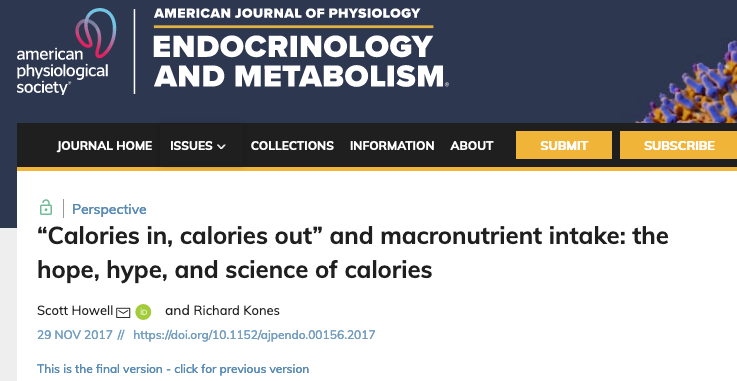No, no, no…  First of all, it’s “calories in, calories out.” Furthermore, consider something where we will have no disagreements about the terminology (I hope, anyway…
First of all, it’s “calories in, calories out.” Furthermore, consider something where we will have no disagreements about the terminology (I hope, anyway…  ) - let’s try “Dollars in, Dollars out.” There is no necessary equivalence here. If we’re talking about a budget or balance, then one side can be bigger than the other.
) - let’s try “Dollars in, Dollars out.” There is no necessary equivalence here. If we’re talking about a budget or balance, then one side can be bigger than the other.
Nope, that’s not CICO (you’re only looking at the 'in"). But to continue being logical about it, don’t you agree that if one maintains the hypocaloric diet for long enough, one will necessarily lose weight?
 No, no, good gravy, no. “Calories in, calories out” does not pronounce that macronutrients do not matter. It’s just saying, “Here’s where you are as far as calories.” The type of calories is a separate matter. From ‘CICO,’ while we can infer certain other important factors that relate to metabolism and weight, there is not enough information given to address macronutrient type.
No, no, good gravy, no. “Calories in, calories out” does not pronounce that macronutrients do not matter. It’s just saying, “Here’s where you are as far as calories.” The type of calories is a separate matter. From ‘CICO,’ while we can infer certain other important factors that relate to metabolism and weight, there is not enough information given to address macronutrient type.
Same as above. No, that’s not “calories in, calories out.” You have changed to the assumption that the “in” will be less than the “out.” This is right after you were pretending there was an ‘equals’ sign in there. Honestly… 
You are conflating humanity’s difficulty with maintaining a prescription for weight loss with the prescription itself.
That’s hopelessly confused. We begin with the law of conservation of energy. CICO fits right in. Beyond that, we can go on to other considerations, and you reflect that, below. Knowing only ‘CICO’ and relating it to time, we can infer to a high degree of confidence that weight change is occurring. This is demonstrated by endless studies, as @ctviggen’s, above. It also should be intuitive and self-evident, i.e. how could it logically be otherwise? This is not saying that caloric change will directly relate to weight in a linear manner (this too, as above). But weight change (if any) and energy expenditure will explain almost almost all the goings-on in the human thermodynamic realm. Here I mean that there is not much left, at all - a comparatively very, very little amount of energy in waste, normally. Liquid waste normally has essentially zero energy (or fat, protein, carbs if you wish) in it. Human stool normally has a very limited amount of fat, around 10-25 grams per day, almost no protein at all, and 1 or 2 grams of digestible carbs. So, in considering exogenous food, “calories in” either goes to metabolism or fat storage. Those are the 2 elephants in the room, there. On the “out side” is metabolism, standing alone, pretty much. If we’re getting energy from our fat stores, then that becomes part of the “in” side while that is true. The whole package is “in,” then either metabolism, storage or excretion (waste).
Sure - we’ve seen this before, and this is better than pretending that some permanent imaginary equals sign is actually there. Now we are going on to other considerations, and don’t those relationships make sense? We could as well go farther, to the movement of calories by macronutrient type.
For those 3 equations, aren’t they self-evident, if one looks at a long enough time?
Or, how long could a human satisfy the equations without having the stated conclusions be true?


